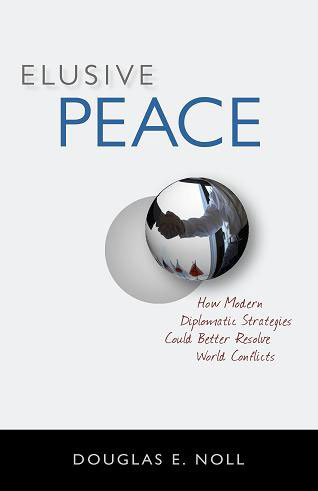Excerpt from Chapter 8 - Kofi Anan and the Kenyan Crisis
Clearly, a crisis had erupted in Kenya. As reports of the organized violence started to trickle out, the media began to use the word “genocide,” bringing back harsh memories of Rwanda. The regional and international community became distressed at the idea of a de-stabilized Kenya enmeshed in civil war. U.S. Assistant Secretary of State for African Affairs Jendayi Frazer traveled to Nairobi, followed by Secretary of State Condoleezza Rice, to push the two sides to an accommodation. President Kikwete of Tanzania and President Kufuor of Ghana intervened on behalf of the African Union. Desmond Tutu and Cyril Ramaphosa of South Africa offered their offices. In addition, foreign heads of state rushed to Nairobi to offer assistance. These included former Presidents Chissano of Mozambique, Masire of Botswana, Kaunda of Zambia, and Mkapa of Tanzania, all members of the Africa Leaders Forum. It looked like everyone and their uncle wanted to mediate this one.
Ultimately, former U.N. Secretary General Kofi Annan was asked to chair a Panel of Eminent Personalities sponsored by the African Union. The panel was composed of himself, Graca Machel-Mandela, former First Lady of Mozambique, and Benjamin Mkapa. Together, they mediated the dispute between the Kibaki and Odinga factions over 41 days in January and February 2008. Martin Griffiths, the executive director of the Centre for Humanitarian Dialogue, interviewed Mr. Annan on May 9, 2008. The following are some of Annan’s recollections of the mediation from that interview.
Mr. Anan explained how he was selected as mediator. “I happened to be in Accra, and the President of Ghana, Kufuor, was then Chairman of the African Union; he called me and said, ‘You know what has happened. We’ll need your advice and help.’ So I spoke to him on and off, and then he decided to go to Kenya (…). He spent two or three days there, he saw the President [Kibaki], he saw Odinga – he had attempted to bring them together. It didn’t work. So he called me and said, ‘It is not going well; I will have to return, but we will have to find some way of assisting them, and I’m pleading with you to assist me, and I may also ask Ben Mkapa and Graca to join you as a panel of eminent personalities.’ So I spoke to both Graca and Ben Mkapa who had himself been in Nairobi when President Kufuor got there, as part of the group of former heads of states who are members of the African Forum.
“I had a mandate which was quite unusual, and very short – almost one line – which is sometimes good. I also felt, as it was an African Union mandate, we were going to need strong support from the international community, and I felt I had to organize it before I got in: get them to understand how I was going to approach the problem, what sort of support I needed from them, and how we should coordinate. Because I know that sometimes, when these things happen, lots of people rush in and sometimes different mediators come in and it leads to confusion. So I wanted to get it right from the beginning – that we should speak with one voice, and that I’m going in to do my best and there should be [just] one mediating process. They all agreed and said, ‘We fully support what you are going to do.’”
“I had some general ideas of what I would want to see, but it crystallized as I went along.”
“One of the ideas I had was to address the early signals that you can’t ignore – that there was an ethnic element, which you really need to be concerned about because that can really push things in the wrong way, and you can get it hopelessly wrong. So there was a need for prompt action to try and stem that.”
Of course, Mr. Annan was correct about stopping the violence, but he erred in believing the violence was based in ethnic differences. Fundamentally, Mr. Annan formed a working hypothesis without analyzing what was really going on.
Ethnicity, in terms of tribal membership or affiliation, was not the issue. As John Githongo, formerly the Kenyan official in charge of uncovering and rooting out corruption in the government said at the time, “Ethnicity is a mobile and nebulous concept. It means different things at different times, and sometimes matters more than at others. Today, ethnicity in Kenya means politicized kinship more than it does anything else; a kind of overpowering identity informed by grievance, a sense of being wronged, of being under siege.”
Mr. Annan apparently did not fully appreciate that the underlying conflict dynamics related to economic and social inequality, corruption, and land reform. Instead, he saw the violence in terms of ethnic tribal group against tribal group. That was not how the Kenyans saw it, and Mr. Annan probably should have asked more questions about the structural problems. As a result, he too narrowly defined the scope of the mediation and consequently failed to have Kibaki and Odinga focus on the broader problems in Kenya.

